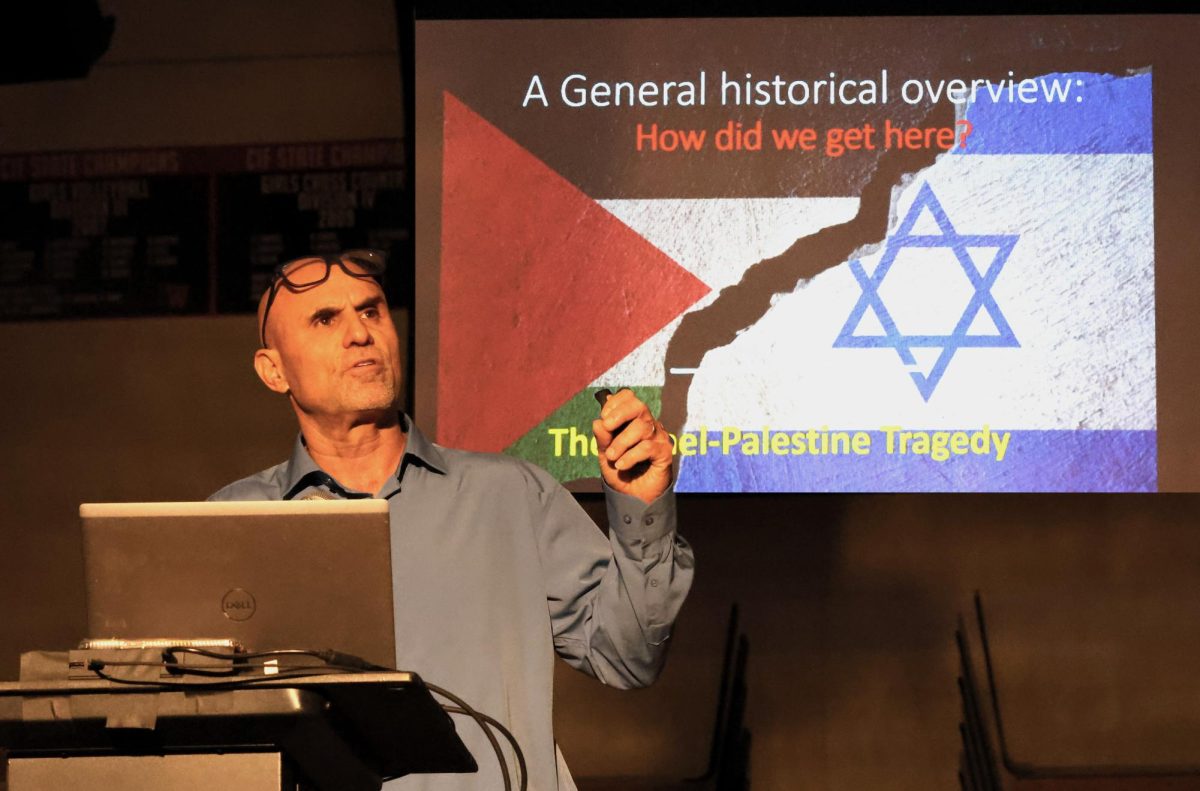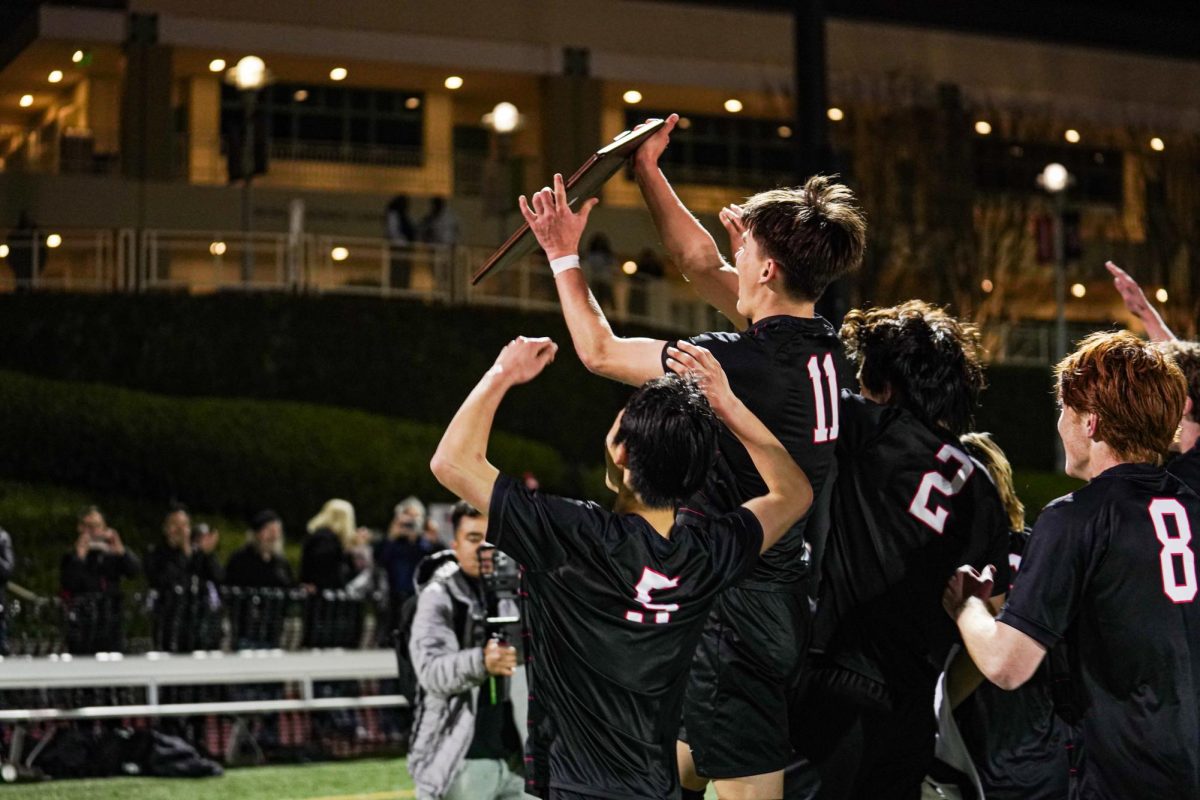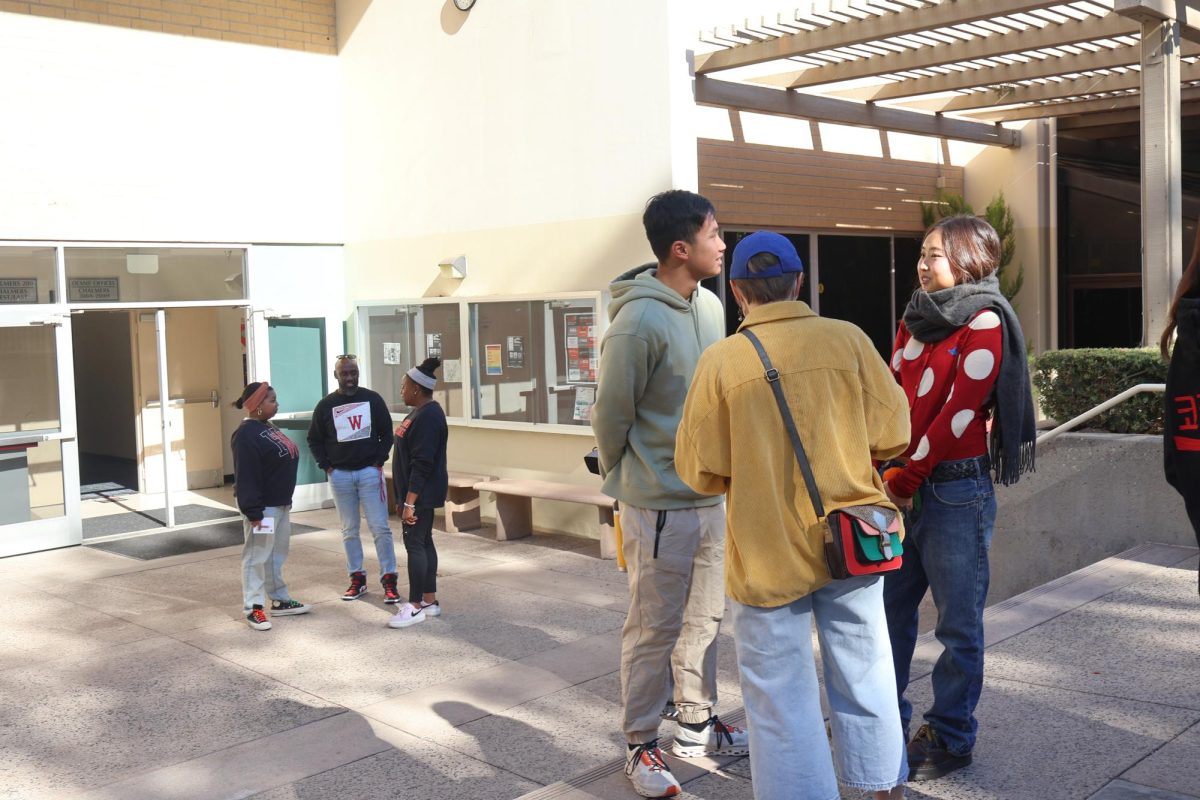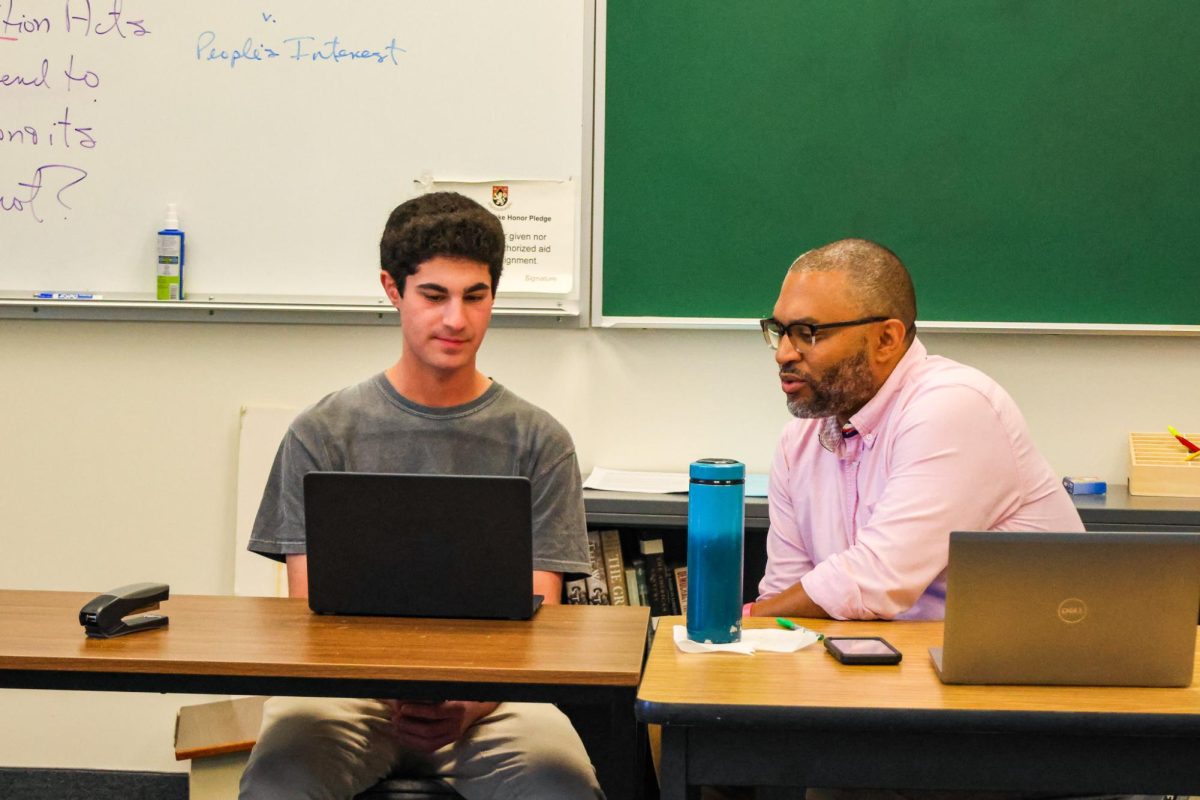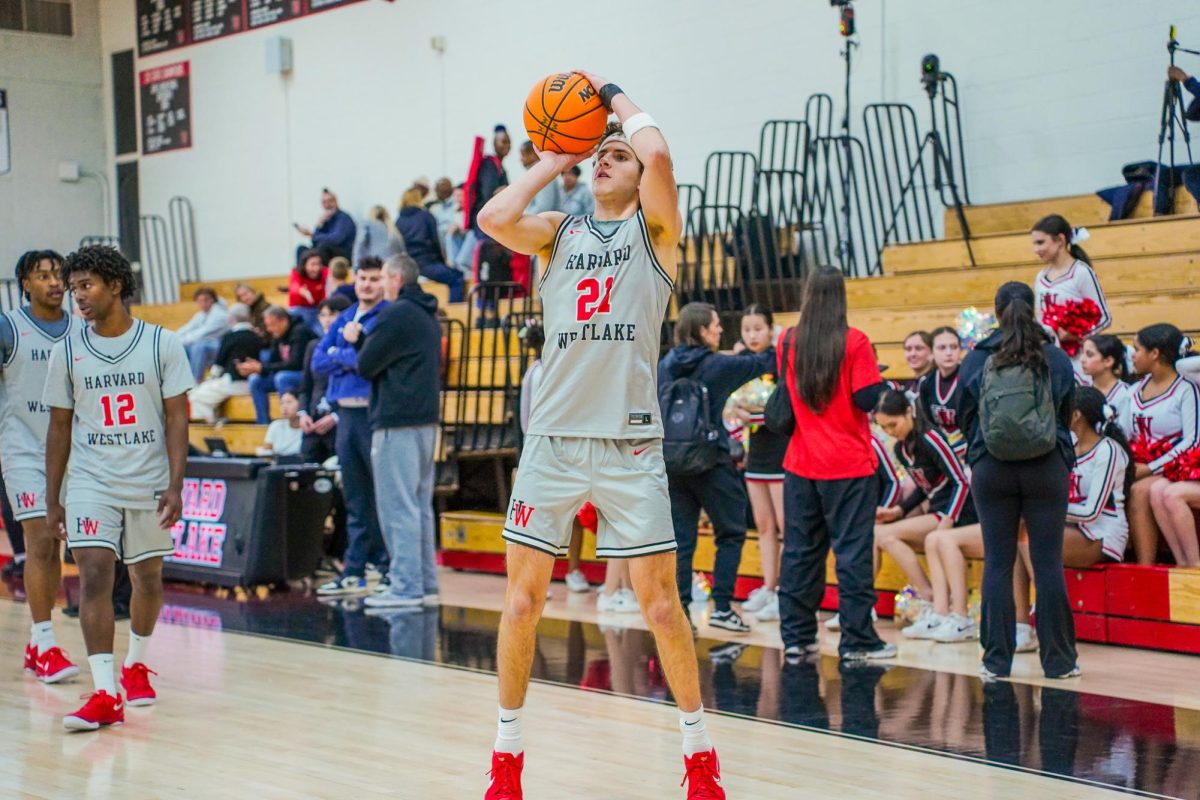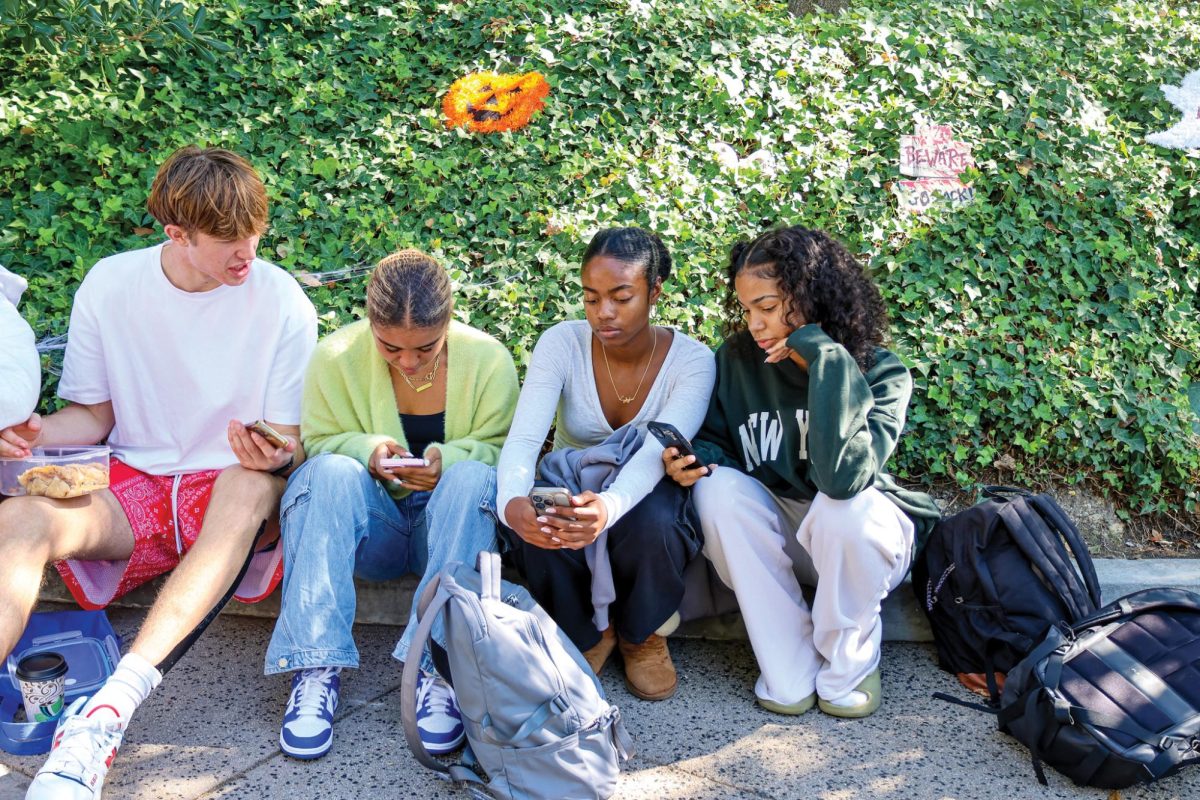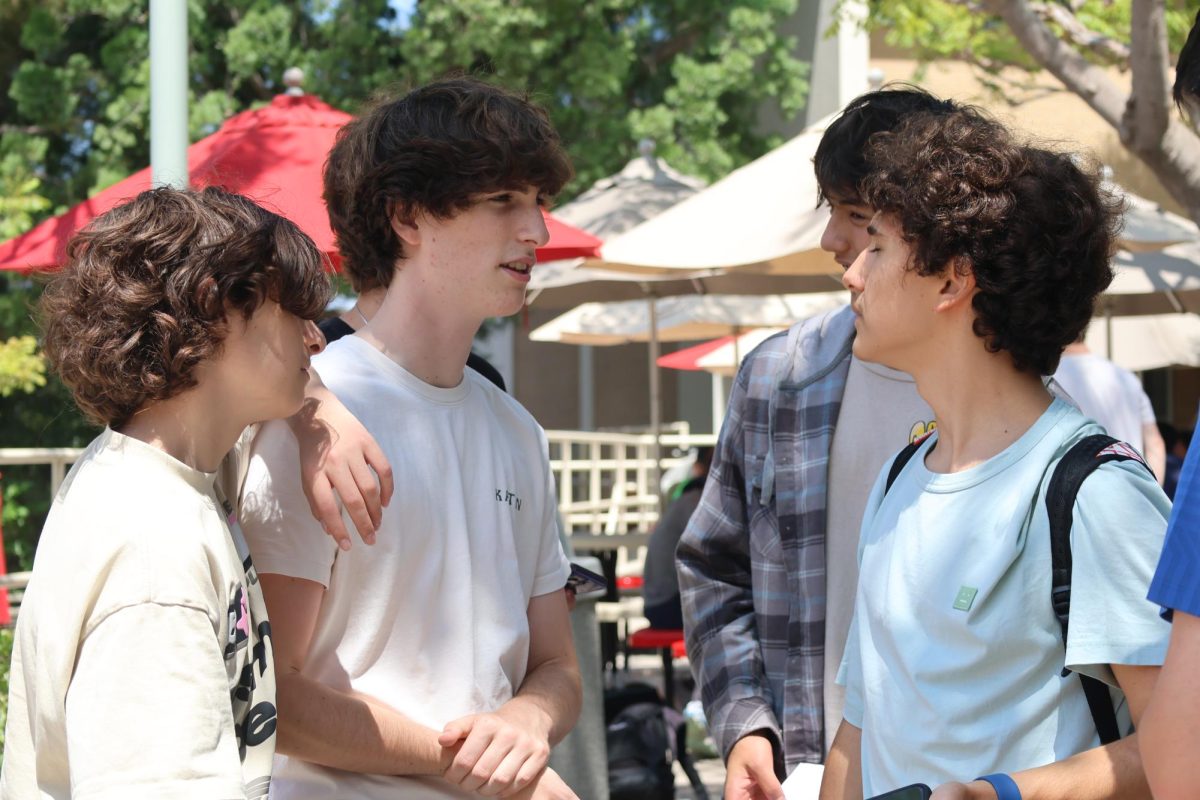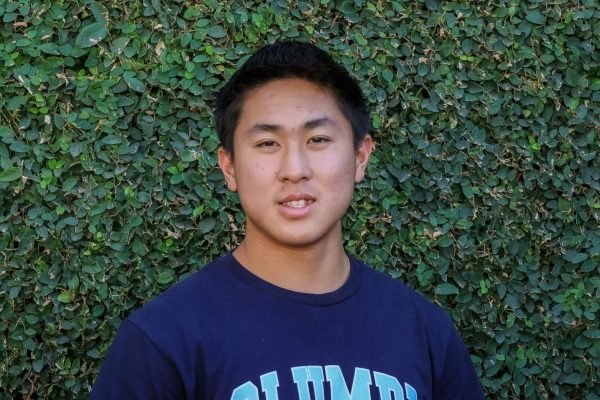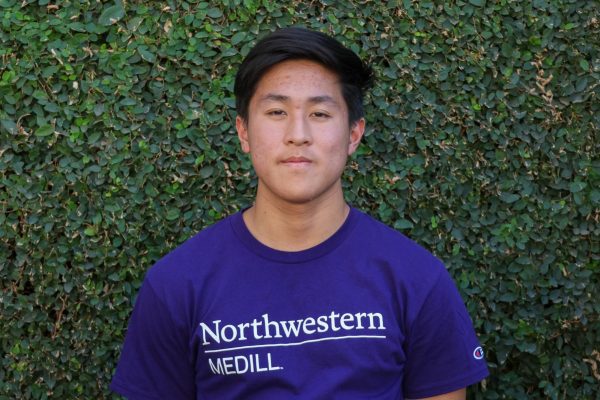The school held a mandatory assembly for sophomores and juniors to learn about the history behind the ongoing Israel-Hamas war in Taper Gymnasium on Oct. 23. History teacher Dror Yaron provided a historical background of the geopolitics in the region and explained the current implications of the war.
Head of Upper School Beth Slattery opened the assembly by expressing the need for compassion in the community despite the complexity of the issue. She said the goal of the assembly was to encourage learning about the conflict and its history from a factual standpoint.
“Our job as a school is not to tell you what to think, but rather to help teach you how to think critically and make informed opinions,” Slattery said. “One of the things that can be tempting and especially complicates the issues which we’ll talk about, is [the temptation] to hear something from a source that you trust, without having any background knowledge. In the case that we’re dealing with now, that can be really hurtful to people if we don’t necessarily know all about it.”
Slattery said educating oneself is the first step towards supporting others.
“[The school] is also trying to develop empathy,” Slattery said. “Right now, there are a lot of people in our community who are hurting deeply. Many of us don’t understand why they are, because we might not understand the issue itself. What’s most important right now is that we show our support, compassion and kindness to one another.”
Yaron opened the presentation with an anecdote about two students in his class. He said that despite the division between their two states, their sympathy for each other gave him hope.
“I have two students, one that is Jewish with an Israeli background, and the other Palestinian, who are great friends,” Yaron said. “Regardless of all the emotive residence and compulsions that both are feeling for different reasons, there in that moment, freezing time and seeing them together in an embrace and friendship, it’s really heartening. If you have two students from that background, who are able to characterize this connection, then there is indeed hope, at least on a personal level in [America] that gives the ability for people from different backgrounds to intersect in a generally secure space.”
Yaron continued the assembly by discussing the history between Palestine and Israel, with both states each having made legitimate claims for the contested land. He gave context to the conflict, which dates as far as biblical times, and then spoke in depth about a number of influential events in the 20th century that resulted in the current geopolitical status of the land.
Yaron said finding a solution benefitting both states brings inevitable difficulty and anguish.
“Now, [a two-state solution] is not a choice between bad versus worse, but worse versus cataclysmic,” Yaron said. “This story is tragic. There are modifications and adaptations. There are treatments. But I don’t feel very positive looking to the future, unfortunately.”
Alec Avedissian ’25 said Yaron could have included more information in the presentation to help understand the conflict from both sides.
“In the events that he brought up, [Yaron] did a decent job,” Avedissian said. “However, I think he left out some very important events, such as the 1982 Lebanon War, where Israel invaded Lebanon on false pretenses, as well as other issues that have caused countries around Israel to not side with them. But generally, he did a good job of giving an unbiased [perspective].”
Avedissian said acknowledging the tragedies on both sides is important in understanding the war as a whole.
“A lot of the discourse [in the world] that’s going on right now is based on the fact that there are Jewish people affected, which obviously is [important], but sometimes also negates the fact that 10 times more Palestinians have been killed,” Avedissian said. “In every conflict between Israel and Palestine, you can look at the casualty numbers and see that they’re almost 500% higher for Palestinians, and mostly children or women are being killed in those cases. We’re closer to a lot of Jewish people here in Los Angeles, so we see that it affects them. But we also fail to see the other side of the picture where there are [Palestinians] getting killed and whole families being destroyed. I feel like people don’t take that into account.”


























